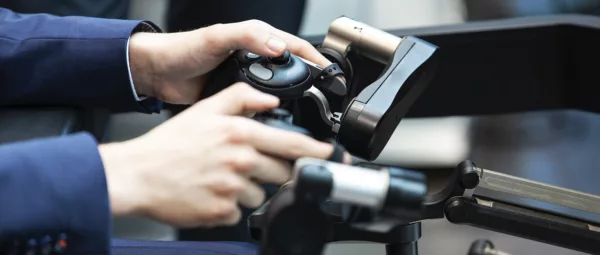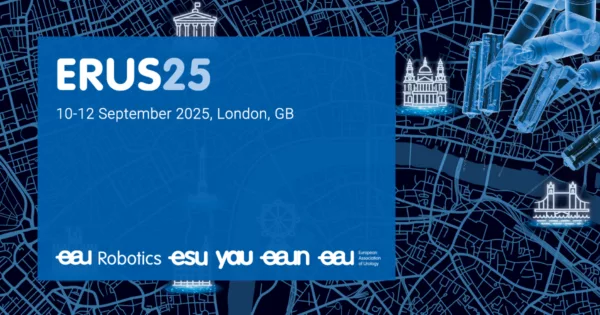Telesurgery and training: ERUS shapes the future of robotic urology
Telesurgery, once a visionary concept, has emerged as a transformative force in urology, blending robotic precision with advanced telecommunications to redefine surgical access and expertise. As detailed in a recent Nature Reviews Urology editorial led by our group, telesurgery is no longer confined to experimental settings - it is a practical solution expanding access to high-level surgical care worldwide.
By enabling remote procedures, teleassistance, telementoring, and global collaboration, this technology is dismantling geographic and logistical barriers. The EAU Robotic Urology Section (ERUS) stands at the forefront of this educational revolution, shaping the future of robotic urology by equipping young surgeons with the skills to master telesurgery.
The rapid evolution of telesurgery demands a robust, structured training framework to ensure its potential as a democratising tool is fully realised. Without comprehensive education, telesurgery risks becoming an elite technology, accessible only to a privileged few. ERUS addresses this challenge by proposing a tailored, competency-based curriculum that blends traditional robotic training with the unique demands of remote surgery. This curriculum emphasises hands-on practice, simulation-based learning, real-time teleproctoring, and exposure to diverse robotic platforms. By fostering technical proficiency and adaptability, ERUS ensures that urologists are prepared to navigate the complexities of telesurgery, from latency management to remote collaboration.
Specialised centres
Central to ERUS’s vision is the idea to endorse specialised centres designed to provide immersive, progressive training for young urologists. The recently launched hub in the Canary Islands exemplifies this commitment, hopefully being the first of many others. Equipped with cutting-edge robotic systems and high-speed connectivity, it serves as a strategic node in Europe, enabling trainees to engage in telesurgical sessions and connect with global mentors in real time. By decentralising expertise, ERUS hubs should empower urologists in peripheral and underserved regions, ensuring that surgical excellence is not confined to major academic centers.
Telesurgery addresses disparities in surgical access by enabling remote guidance for local teams, reducing the need for costly and environmentally taxing travel. This aligns with a sustainable future for surgical education, minimising carbon footprints while maximising global collaboration. ERUS hubs will be pivotal in this mission, serving as conduits for equitable knowledge dissemination and nurturing talents across diverse settings.
Moreover, ERUS hubs would be leaders in protecting patient rights and privacy, paving the way to the use of telesurgery in the respects of legal and ethical rights, which is one of the main issues regarding this topic.
ERUS remains a leader in defining its ethical, clinical and educational frameworks. By prioritising structured training and global mentorship, ERUS ensures that telesurgery fulfills its potential as a transformative force in urology. The future of robotic surgery depends not only on technological innovation but on the surgeons behind the console. Through its visionary initiatives, ERUS is preparing a new generation of urologists to lead this revolution with skill, precision, and a commitment to equitable care.
ERUS25 in London
Join us at ERUS25 in London on 10-12 September for a groundbreaking live telesurgery connecting surgeons in London (surgeons) to patients in Aalst (BE) and Beijing (CN), as well as live broadcasts of cases from New Delhi (IN) and Hackensack (NJ, USA) - a true showcase of global collaboration, breaking barriers and shaping the future of surgical innovation!
Authors:
Alberto Breda, Giulio Avesani, Francesco Di Bello, Pablo Juarez del Dago Anaya, Andrea Gallioli.

